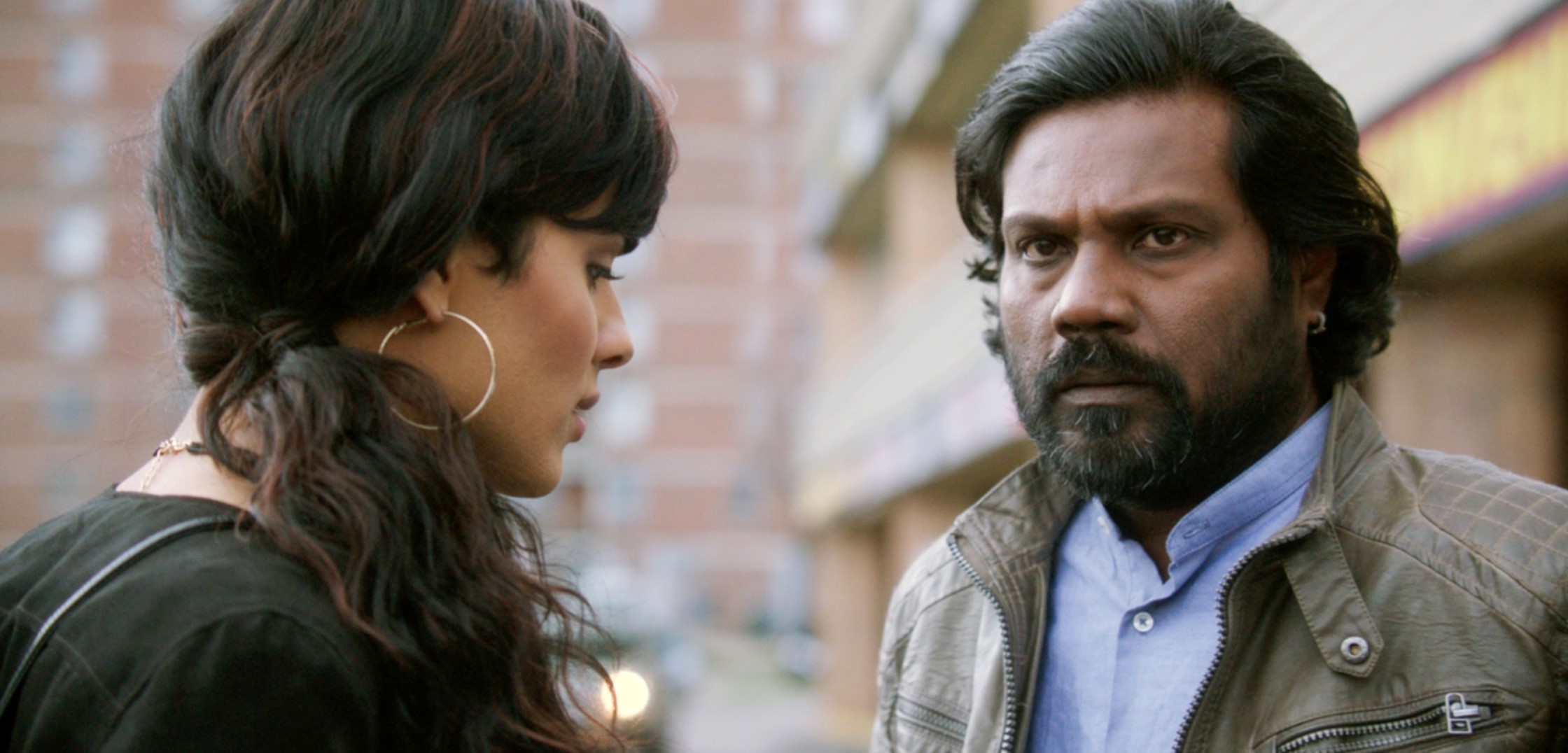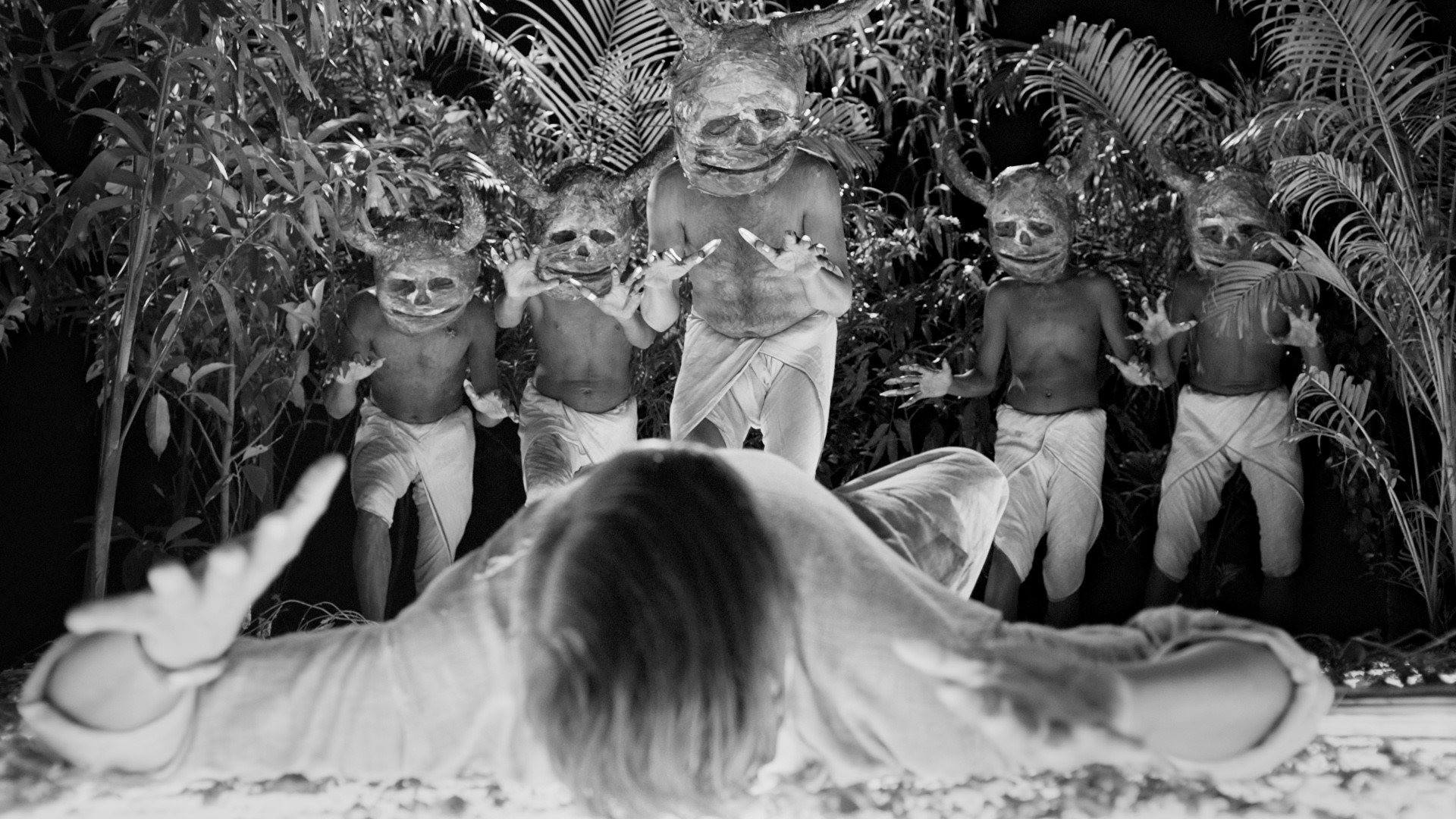Review by © James Evans, Film Critic/Historian
Review of Roobha, and Ghost of the Golden Groves
Roobha (d: Lenin M. Sivam) and Ghost of the Golden Groves (Shonajhurir, d: Roshni Sen and Aniket Dutta) are two films at the London Indian Film Festival sharing similar themes, but radically different subject matters. The thematic similarities concern change, transition and metamorphosis. In the former, a transgender individual seeks to medically alter his sexuality while in the latter, two individuals are supernaturally altered: one metamorphoses into a polymorph and the other is absorbed into an otherworldly group of beings with whom he eventually finds himself in a permanent state of liminality. Indeed, the main protagonists in both films are to some extent caught up in liminal states, the characters finding themselves in transitional stages of change and standing on the threshold. Whenever change happens, there is an emotional, psychological and social price to be paid by the individuals concerned and their society.
The main character of ‘Roobha’ is named after the Tamil myth of the neglected wife Princess ‘Roobha’, who discovers her husband dancing and singing in the forest dressed in women’s clothes and in disgust cuts off his genitals. The film’s narrative concerns the attraction of an older married Tamil man named Anthony to a young, attractive and troubled transgendered male, Roobha, who is seeking to medically alter his gender assignation. The key role of Roobha is a difficult one to navigate, but is perfectly cast and portrayed by Amrit Sandh in a sensitive and moving performance. Likewise there is an equally outstanding performance of the character of Anthony as played by Jesuthasan Antonythasan, famous for his role in the film Dheepan.
The trials and tribulations of a transgendered male in an often hostile, uncomprehending and hegemonic ‘straight’ society and the agonies of a married man with children falling in love with a transsexual are subtly and honestly explored in this poignant but occasionally tough and sometimes painful film. Though the very thin line between drama and melodrama is left mostly uncrossed, a couple of the storylines come close to sliding over to the melodramatic side, especially in Roobha’s relationship with his father. That said however, Roobha is a rewarding watch and a brave statement from Canadian director Sivam, whose film is an important contribution to the growing sub-genre of Tamil diaspora cinema where exploring transgender issues is uncommon. Roohba casts a perceptive and necessary eye on a subject that is seen as taboo for many native filmmakers and as such, opens up an essential socio-sexual dialogue with audiences.

In stark contrast, the somewhat surreal black and white (with occasional flashes of colour) two-hander film Ghost of the Golden Grove engages with non-scientific, non-medical methods of metamorphosis, namely supernatural forces. In the first story, The Polymorph, a man from the strictly objective world of engineering encounters some odd locals, one of whom announces himself as a polymorph and later invites the engineer to come with him to a sacred place to see something unusual and to “have some fun”; the ‘fun’ element involves a curious bunch of fellows who eventually summon the local shaman to help to identify the genuine masked polymorph among the group. By means of a mix of magic and ritual, and accompanied by unusual visual and sound cues, the story unfolds and leads to a not wholly unexpected conclusion involving transition and change.
In the second story in the film, titled Maya, a wandering, unemployed cook is given refuge by a mysterious man who first retains him in his crumbling house and then abruptly takes his leave, allowing the cook to take over habitation and ownership of the house—but not before the mystery man gives him some ominous warnings about the domicile and its environment. The cook is soon having visions and hearing otherworldly sounds and in investigating further finds himself crossing a rather surreal threshold after which he metamorphoses into what appears to be a Sisyphus-like state of perpetual performance in which he is doomed to recount chapters of his life (the film’s narrative)—an existence from which there is no return. And as Indian folklore has it, when the veil of maya (illusion) descends upon a human, it deflects them from recalling their true origin or goal.
This evidently low-budget film is not entirely successful in its dalliance with B-movie tropes and owes a debt to other directors such as Alexander Jodorowsky, Jim Jarmusch, David Lynch and sundry other filmmakers of a surrealist persuasion but is, nonetheless, to be applauded for its worthy attempts at reinvigorating a well-mined genre with a distinctly Indian sensibility.
Both these films suggest that change is inevitable whether solicited from a medical source or from an unsolicited supernatural one; whether from a surgeon’s operating table or a Shaman’s magic circle.
